By Shayla Blatchford On a day like this, just near the halfway mark of the legislative session, there is never a dull moment at the State Capitol (Roundhouse) in Santa Fe, NM. The happenings range from union workers taking a stand and confronting their senators outside the Chamber House doors, to the continuous inside jokes that run through the mailroom during the dispersing of bills. In addition to the constant waves of people flowing from one committee hearing to the next, the Roundhouse has also made time to celebrate its culture and history later this afternoon. It may seem like a stiff environment when looking in from the outside, but once you get to know how accessible everyone is, especially within the senate, you begin to realize how you can truly be heard as an individual. The ties and suits may seem a little intimidating at first, but those who work within the Capital are just doing their jobs like the rest of us—except some of them are doing it for close to nothing. Per diems, for some, don’t always cover the cost of lunch and just to give you an idea, you can buy the cheapest B.L.T. in Santa Fe at the Roundhouse for close to $2.50. In addition to paying for a hotel for up to two months and getting by on a few dollars for meals, the hours are long and there are no breaks. Outside the double doors, it’s hard not to notice the group of men in their cowboy hats, boots and belt buckles and you start to wonder who these men are. They’re not in suits sitting behind a desk reviewing bills or taking a breather in the exclusive lounge located behind the Chamber House doors. They look...
Rubbing Elbows
posted by votergirl
By Mark Feigenbutz/Photos by Tim Kassiotis I don’t rub too many elbows. Not lately, at least. For the past couple years, my elbows have been as rub-free as a one-legged cricket. But in light of my recent trip to the New Mexico State Legislature, I think I should invest in some elbow callous-generating activities. The Legislature building is an important building in that it looks important (and that you must capitalize it in writing). If you’re easily thrown by marble or wood grain, you might miss the subtler, more human elements of the subtler, more human humans who inhabit it. Now, I’m sure the argument could be made that it is, in fact, “important,” but you’d be wrong because this is my article. Despite what the sunglasses-inside-the-building, Men’s Wearhouse suited d-bag would have loved for you and I to be fooled into believing, he was certainly not as important as Joe, the proud café lounge manager, or Crystal, the diplomatic mail room supervisor, or Dennis, the corner market bread sample hander-outer across the street. I rubbed my first elbow with Joe Mora, the café lounge manager. My first impression of Joe was that he seemed like a down-to-the-salt-of-the-earth, good dude. He’s the kind of guy that you wouldn’t mind leaving your 8 year-old son with in a pinch. (I may even daughter-approve him.) He was also proud of his job – a rare phenomena that I, with a furrowed brow and index-finger-and-thumb supported chin, appreciate. When I asked Joe what exactly he did, he immediately clarified that, “We’re here from 5 ‘til 3.” His crew behind him seemed to appreciate their inclusion in the interview. Why do they get there that early? Because “everything is made from scratch,” from “the red chile, green chile,”...
Cirque du Santa Fe
posted by Brandon Ghigliotty
By Brandon Ghigliotty/Photos by Sandra Schoenenstein “Mr. Speaker gentlelady from Chavez County, do you love the lesser prairie chicken?” The house gallery erupts in laughter. My reaction is slightly different. I’m uncomfortable with the fact that someone pleading to thwart a species’ extinction is being humiliated. I exit the chamber, shaking my head clear of the ringing laughter. Ideas escape me and the only persistent one is shot down. My colleague convinces me it is too early to visit the bar. I consider writing about the art of the Roundhouse, the paintings of men in cavalry coats striding across the desert, the buffalo built from recyclables (which happens to mark North in the Roundhouse) and the various other bits of furniture and sculpture that have found a home here. It would be easier to approach the pieces of art and their placards than it would be to approach the mayor while he sips his soft drink. I do neither. My photographer arrives and we re-enter the house gallery. Her eyes light up. The lesser prairie chicken is still the topic of debate. “Mr. Speaker, gentlelady…” The question rambles. A frocked woman is trying to ask whether helping the lesser prairie chicken’s current plight would be addressing a drought problem rather than a lesser prairie chicken problem. That perhaps intervention to mark the lesser prairie chicken as endangered is not the best answer to an issue brought on by drought conditions. The response she receives: god is in control of our drought situation. I am stunned. My brain is sick with the implications of this statement. If god made us, and we’re killing the lesser prairie chicken and god simultaneously is trying to snuff them out with a drought. Then god clearly has no love for...
Jake Trujillo: On Barista-ing, Music, and Being House Majority Liaison...
posted by Christopher Stahelin
By Clara Hittel/Photos by Christopher Stahelin Jake Trujillo sits on a bench at the edge of the room observing a heated(ly comical) debate on the preservation of the lesser prairie chicken between state Rep. James Roger Madalena, D-Rio Arriba, and state Rep. Candy Spence Ezzell, R-Chaves. After some staggeringly unprofessional questioning and a representative’s impersonation of a chicken, House Memorial 21 passes—“A memorial requesting that local officials support local efforts to preserve and protect the lesser prairie chicken and oppose its listing as “threatened” pursuant to the Federal Endangered Species Act”—and Trujillo slips from the House. Photographer Chris Stahelin and I later find him looking down at us from the second floor balcony. We wave at each other, and then the House Majority liaison disappears from the balcony in order to come down and speak to us. I first met Santa Fe-native Jake Trujillo in 2008. He was playing guitar and singing an original composition at Meow Wolf’s old location off Second Street. I thought he was a very impressive songwriter, and after that I saw him everywhere I went like he was a character in a comedy about a small town—the character that seems to work in every shop and café. (Note: Trujillo actually has worked in many cafés around Santa Fe.) This is why I was not surprised to find him working at the New Mexico State Legislature. “I got pretty lucky in the grand scheme of things—I got a pretty cushy job,” he grins. This year is Trujillo’s fourth at the Legislature—a job he says simply fell into his lap. He deserves it, even if it’s only temporary. “…It was always harder…to go back to barista-ing after working at the Roundhouse,” he admits. “Being a barista can be hard...
NM Capitol Draws More Than Just Politicians...
posted by Michelle Rutt
Even from curb at the intersection of Paseo de Peralta and Old Santa Fe Trail, you can hear the passive aggressive bickering of seemingly bored politicians from inside the New Mexico Legislature. Upon entering the grand rotunda, you are quickly glanced upon by the pampered-up middle-aged tour guides, but since it is a public building, the idea of free reign to walk wherever one pleases is a much more tempting offer.
Touring the Hubbub
posted by Amanda Tyler
By Arianna Sullivan/Photos by Amanda Tyler “This,” says Marquita Sena, “is my favorite seal of the whole building.” We are standing at the edge of the balcony that stretches all around the circumference of the inside of Santa Fe’s Capitol building, The Roundhouse. The seal that Marquita refers to sits all the way down on the first floor, centered by the circular building “In the center we have both the American Bald Eagle and the Mexican Harpie,” begins Marquita, explaining her fondness for this particular seal, “and they are encircled by the Zia symbol—which represents the four points of a compass, the four periods of the day, the seasons of the year, the four stages of life.” She tells us, with the same pride in her voice as when she had explained that all of the marble in the building is from New Mexico, that the seal is set in the floor with Turquoise—New Mexico’s state stone. “It is this representation of both the Native American and the American that the building does so well,” explains Marquita. Marquita’s eyes light up as she tells us how her husband used to take her flying over the roundhouse before she ever worked there. “From above we could see the shape that the building was designed to make—the shape of the Zia.” Marquita is not the only tour-guide for the Roundhouse who has a sense of personal pride for the building. The tour guides, who are seated around a long rectangular table chatting and enjoying each other’s company when we first approach them, become serious and full of praise when we ask them about their jobs. All around the table the women echo each other with variations of, “we love this building.” Several of the women are...
Capitol Café Hustle
posted by Charlotte Martinez
By Charlotte Martinez/ Photos by Amanda Tyler Legislating at the Santa Fe Capitol (aka the Roundhouse) runs like an ant hill. Workers zig zag across halls, hierarchy command from their post, and staircases hustle with feet. The higher you go, the more prestigious it gets. It’s quiet on the top floor—perhaps the lush carpet hordes chatter and phones send coded rings directly to their receivers. The few who linger here have stoic or concerned expressions. They move as if they want to leave. The bottom floor, on the other hand, brings life back to the Capitol. Here, on the bottom floor, nestled first doorway to the left, is the Capitol Café, where conversing is informal and food is comforting. It’s not so much a café as it is a walk-in nook. Perhaps 12-by-6 feet of customer space and 15-by-10 feet of kitchen space. The area booms with laughter, clings with pans and sounds with friendly “hellos.” Two woman stand behind a counter, chatting. Chefs in the back spring from side to side, preparing orders. A young man in a suite strides in. He asks for a juice and brings out his wallet. “Can I write a check?” he asks. Behind the counter Debra Zamora, a lively middle-aged food server from Roe New Mexico, laughs. “Sure, I’ll just take interest on it, that’s all.” The man stops and smiles at her. He orders something else. “This kind of treatment doesn’t happen upstairs,” he jokes. Zamora nods. “This is the kind of service we offer.” “That’s why I come downstairs,” the man says, writing his check. “I even come order my lunch downstairs and take it upstairs.” He turns to leave. “Thank you very much.” Next, a woman comes up to the counter and orders a...
Behind the Reece Act
posted by Nick Martinez
By Nick Martinez/Photos by Luke Montavon On Sept. 2, 2002 Reece Nord was riding his bike home when he was stuck and killed by a drunk driver. The driver, Justin Mishall, was later charged with several counts, including vehicular manslaughter, and served 3 1/2 years in prison. Part of his sentence was also to pay restitution to the Nord family $15,390 for medical and funeral costs. More than a decade later, Mishall has paid $750 of the total sum he owes. Due to a loophole in New Mexico law, once a criminal completes his or her parole they no longer have to legally pay the restitution the courts originally demand that they pay. Families can take these criminals to civil court, though that brings plenty of expenditures on its own Nord’s family, not wanting to deal with Mishall any longer, penned a letter that eventually reached Gov. Susanna Martinez, who made sure that a bill was drafted. State Sen. Mark Moores, R-Bernalillo, sponsored the Criminal Restitution Act, also known as The Reece Act, which was recently tabled until the next legislative session. “The current loophole lengthens the criminal process, it causes more expense to the family because they have to hire another attorney,” said Moores. “It just clogs up our court system with these civil lawsuits.” While the civil courts may be clogged, the financial report regarding SB 207 indicates that the judicial courts don’t currently have the resources to support tracking down defendants who refuse to pay restitution, and providing those resources may prove too costly. With the state unwilling to pay, it leaves the family in charge of tracking down their restitution, prolonging their relationship with the people who wronged them. This prolongation is exactly what Barbara Nord, Reece’s mother, is trying...


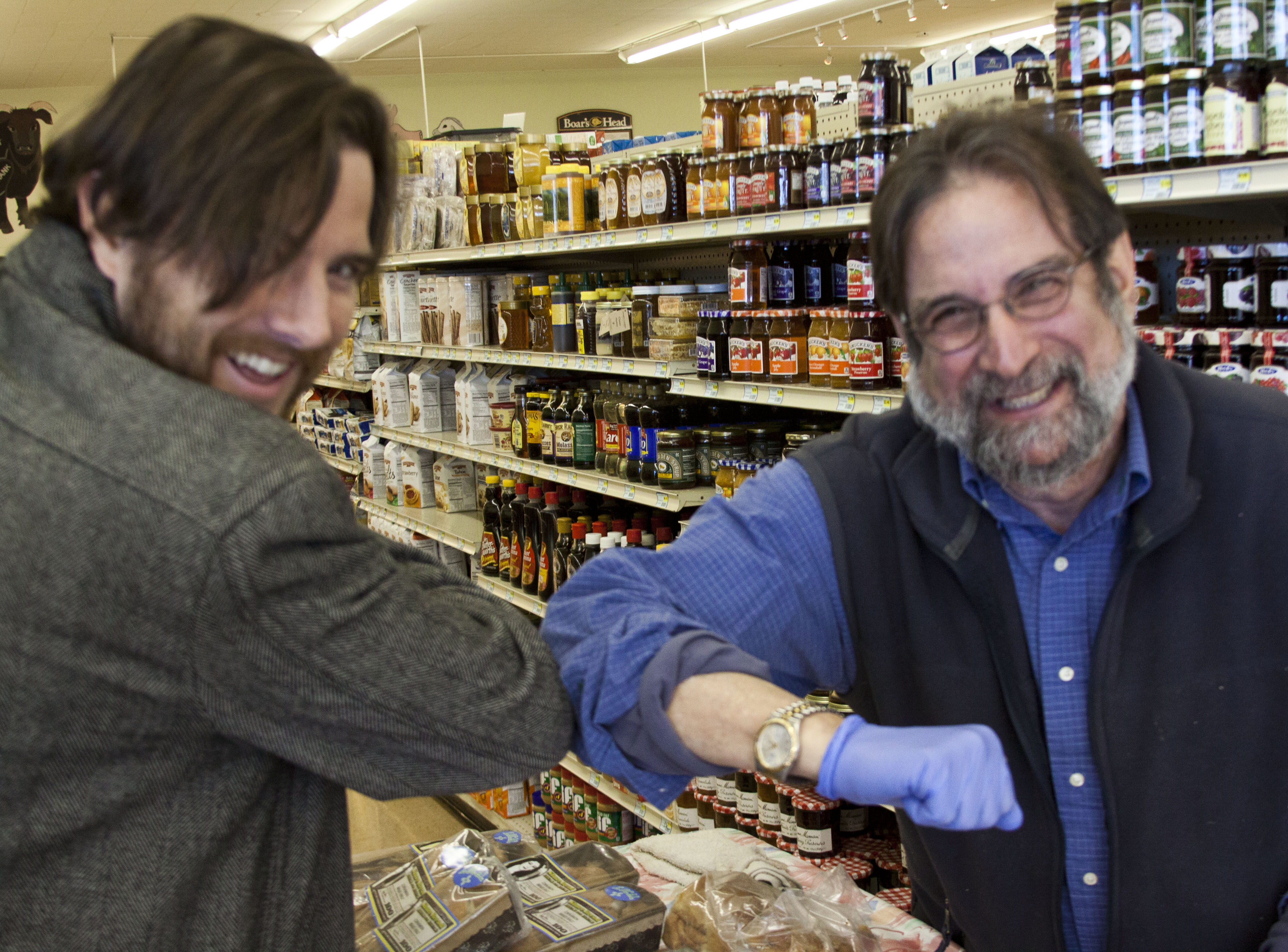
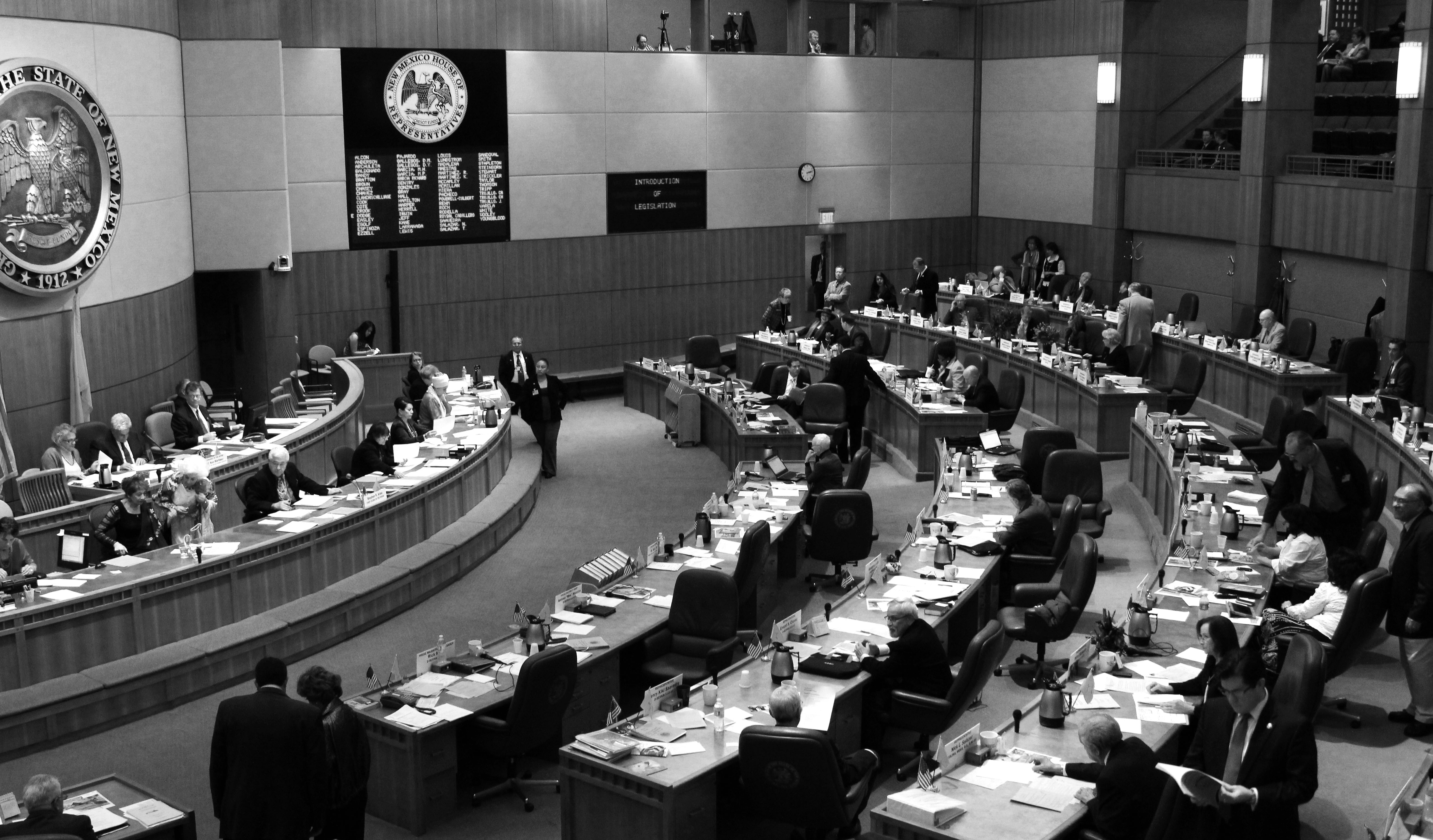

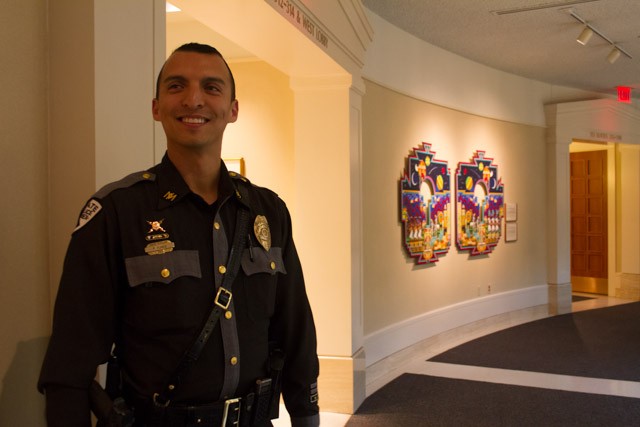
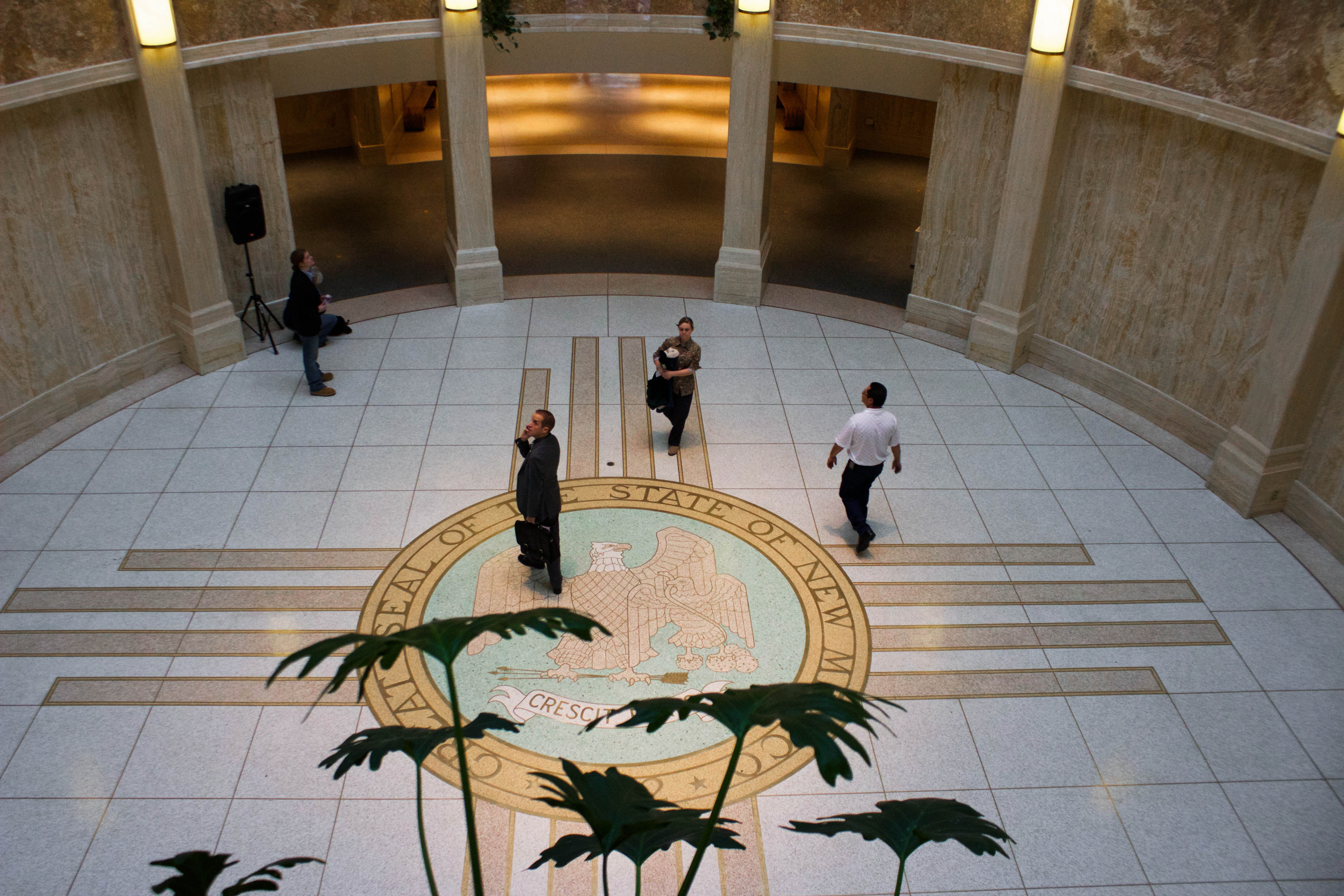

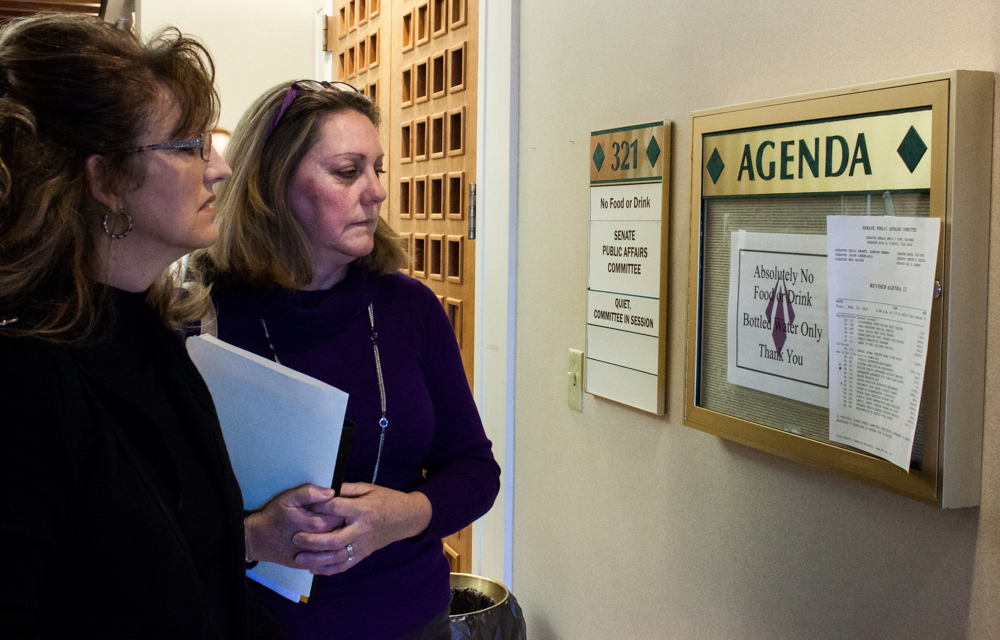
 Jackalope Magazine is the student magazine of Santa Fe University of Art and Design. Building on the interdisciplinary nature of our education, we aim to showcase the talent of our university and character of our city.
Jackalope Magazine is the student magazine of Santa Fe University of Art and Design. Building on the interdisciplinary nature of our education, we aim to showcase the talent of our university and character of our city.
Recent Comments